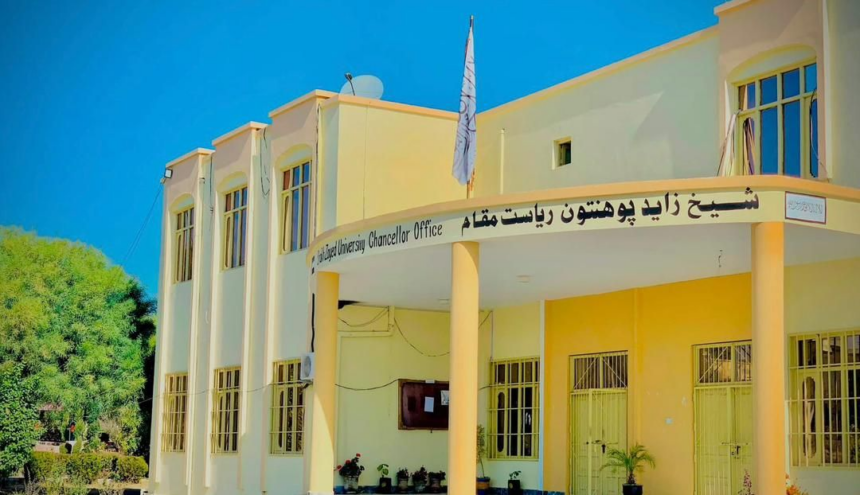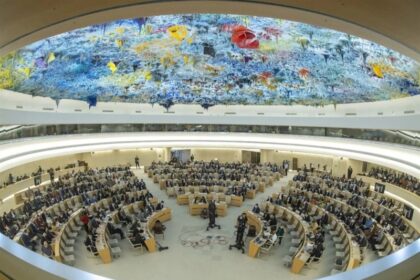RASC News Agency: In a sweeping and ideologically driven purge, the Taliban have formally terminated the employment of 120 professors and administrative staff from Sheikh Zayed University in the eastern province of Khost. The move, confirmed on Tuesday, May 13, was carried out under the pretext of “institutional downsizing” a euphemism critics say masks the regime’s ongoing campaign to dismantle the remnants of Afghanistan’s modern academic infrastructure. Among those dismissed are highly qualified academics, including dozens of scholars with master’s and doctoral degrees, many of whom played vital roles in educating students during the era of the former republic. These individuals, who once formed the intellectual backbone of the university, have now been systematically expelled from the institution without compensation or viable alternatives for employment.
According to local sources in Khost, the decision was made following explicit orders from the Taliban’s leadership to reconfigure university staffing along ideological lines, replacing secular expertise with religious orthodoxy. The implementation of this policy is expected to extend to every faculty and department within the university. The purge disproportionately targeted professionals who had served under the previous government and who relied entirely on university salaries to support their families. With no viable job market under Taliban rule and widespread economic collapse, the dismissed faculty now face dire financial uncertainty, compounded by the regime’s rigid restrictions on mobility and freedom of expression.
In addition to academic faculty, numerous administrative staff were also abruptly removed. Some of the affected employees, speaking on condition of anonymity, described the decision as a death sentence for their livelihoods, adding that working at Sheikh Zayed University was their only source of income in an increasingly closed and repressive society. This most recent wave of dismissals mirrors earlier Taliban efforts to systematically expel professionally trained educators across Afghanistan. In prior cases, individuals with advanced degrees were removed and replaced with inexperienced graduates of Taliban-controlled Madrassas, many of whom lack formal academic qualifications or familiarity with modern pedagogical methods.
While the Taliban claim these measures are intended to “reform and restructure” Afghanistan’s higher education system, education advocates and human rights groups warn that the regime’s true objective is the de-intellectualization of public institutions. By sidelining merit, scholarship, and scientific inquiry in favor of religious conformity, the Taliban are eroding the very foundation of higher learning and propelling the nation toward intellectual collapse. “What is unfolding is not a restructuring it is a cultural and academic purge,” said a former professor dismissed in the recent wave. “They are replacing scholarship with obedience, logic with dogma, and inquiry with silence.”
Observers note that the Taliban’s reengineering of Afghanistan’s academic institutions is part of a broader authoritarian project to control knowledge production, suppress dissent, and indoctrinate the next generation under their extremist ideology. In this context, universities are no longer seen as centers of learning, but as tools of ideological enforcement. The international community, meanwhile, has remained largely silent, even as Afghanistan’s intellectual class is systematically dismantled. Analysts warn that continued inaction will only embolden the Taliban to deepen their grip over what remains of the country’s educational system transforming universities from bastions of knowledge into echo chambers of absolutism.
This latest purge at Sheikh Zayed University is not merely an administrative reshuffle; it is a calculated blow to the future of Afghanistani higher education. It represents yet another chapter in the Taliban’s war on modernity a war whose casualties are not only the scholars they dismiss, but the students they deprive of a future rooted in knowledge, progress, and possibility.






